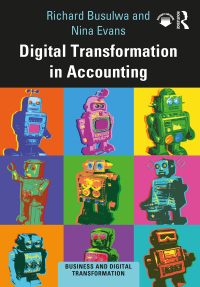Question
Bristol Heating Co. sells one product (Heating Oil), which it purchases from various suppliers in 10-gallon units. Bristols accounting policy is to report inventory in
Bristol Heating Co. sells one product (Heating Oil), which it purchases from various suppliers in 10-gallon units. Bristols accounting policy is to report inventory in its financial statements using the lower-of-cost-or-market method applied to total inventory. Bristols inventory flow assumption is last-in, first-out, and it employs a periodic accounting system. Moreover, transportation costs are debited to freight-in and allocated at year-end as cost of goods sold. Cash discounts are recorded using the gross method. Bristol had determined that, at December 31, 2004, the replacement cost of the inventory was $8 per unit, and the net realizable value was $8.80 per unit. The normal profit margin is $1.05 per unit. Bristol uses the direct method of reporting losses from write-downs of inventory to market. The trial balance at December 31, 2004 included the following accounts. 
[Required] Prepare a schedule of ending inventory and cost of goods sold.
// how do you calculate original cost ? I understand the LCM -- therefore either original cost or Replacement cost of $8.
and Total goods available for sale = Beginning inventory 65600 + purchase 368900 + freight in 5000 - purchase discount 18000 = 421500
421500 = Ending inventory + cgs
To calculate ending inventory = lower cost x 22000
I just can't.. get the original cost
is this like
total purchase of 180400 or 176000 - --- threfore ending inventory is 176000 with $8 replacement cost as a cost
22000 units ending inventory ( 8000 * 8.20) + (12000*8.25) +(2000*7.90) = 180400
CGS = 421500 - 176000 = 245500
I feel like I can calcualte cost if i can only find out what is the original cost.. to compare the replacement cost with ... to find out the lower cost ..
Is this right ?
Sales (33,000 units X $16) Sales discounts Purchases Purchase discounts Freight-in Freight-out $ 528.000 7,500 368,900 18,000 5,000 11,000 Bristol's inventory purchases during 2004 were as follows. Beginning inventory, January 1 Purchases, quarter ended March 31 Purchases, quarter ended June 30 Purchases, quarter ended September 30 Purchases, quarter ended December 31 Units 8,000 12,000 15,000 13,000 7,000 55,000 Cost per unit $ 8.20 8.25 7.90 7.5 7.70 Sales (33,000 units X $16) Sales discounts Purchases Purchase discounts Freight-in Freight-out $ 528.000 7,500 368,900 18,000 5,000 11,000 Bristol's inventory purchases during 2004 were as follows. Beginning inventory, January 1 Purchases, quarter ended March 31 Purchases, quarter ended June 30 Purchases, quarter ended September 30 Purchases, quarter ended December 31 Units 8,000 12,000 15,000 13,000 7,000 55,000 Cost per unit $ 8.20 8.25 7.90 7.5 7.70Step by Step Solution
There are 3 Steps involved in it
Step: 1

Get Instant Access to Expert-Tailored Solutions
See step-by-step solutions with expert insights and AI powered tools for academic success
Step: 2

Step: 3

Ace Your Homework with AI
Get the answers you need in no time with our AI-driven, step-by-step assistance
Get Started


